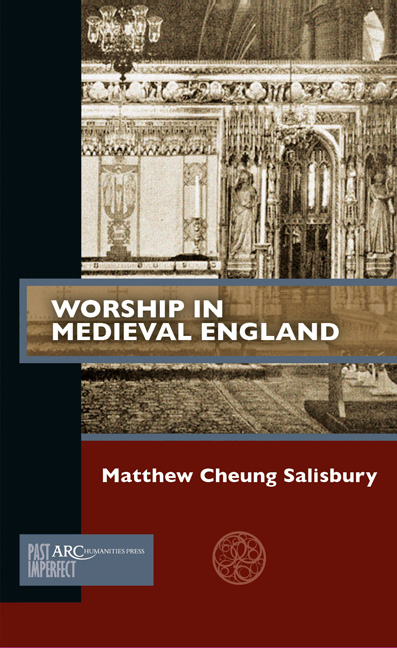Introduction
Published online by Cambridge University Press: 27 January 2021
Summary
This little book has two objectives in mind. By its existence in this series and by means of its counterproposals against three scholarly orthodoxies, it argues for the complexity of the liturgy as a subject for study, and shows that the surviving medieval evidence needs to be examined in ways quite different from the summary treatment it often receives. It also, however, seeks to encourage the reader in their own (future) investigations of the topic by introducing some of the key ideas, resources, and methods, and proposes ways in which they might be explored.
This introduction provides a common vocabulary and understanding of forms, structures, and genres which will be referred to, and a sense of how the liturgy fits into a wider understanding of medieval culture. Each chapter then seeks to present an alternative perspective to ideas and conventions that have sometimes become normative simply because no other possibility has seriously been considered. Many of these observations will be pertinent for liturgical studies of wider geographical scope, spanning the Western Church of the late Middle Ages, but the specifics which follow in three short chapters are focused on the English context. Readers who already have experience with the subject matter will, hopefully, find ways in which these examples challenge and question their thinking, whilst those who are new to thinking about the medieval liturgy will find a foothold.
For these last readers particularly, an additional purpose of this volume is to unsettle the notion that liturgiology is a mysterious, abstruse, and monolithic discipline. Like trainspotting and birdwatching, the discipline of liturgical studies sometimes has a reputation for attracting people who enjoy collecting very detailed information over a long period of time, sometimes without apparent purpose, or who take extreme pleasure in seeking out and recording peculiarities which stand out only to them. There is no denying that the niceties of liturgical philology, as it were, are challenging for the neophyte to enjoy, but what follows seeks to show the reader what may lie beyond the immediate impression of convoluted structures and confusion. In fact, as Chapter 3 suggests, the historical study of liturgy is something to which very few people come specially trained, and everyone comes to it with questions.
- Type
- Chapter
- Information
- Worship in Medieval England , pp. 1 - 10Publisher: Amsterdam University PressPrint publication year: 2018



